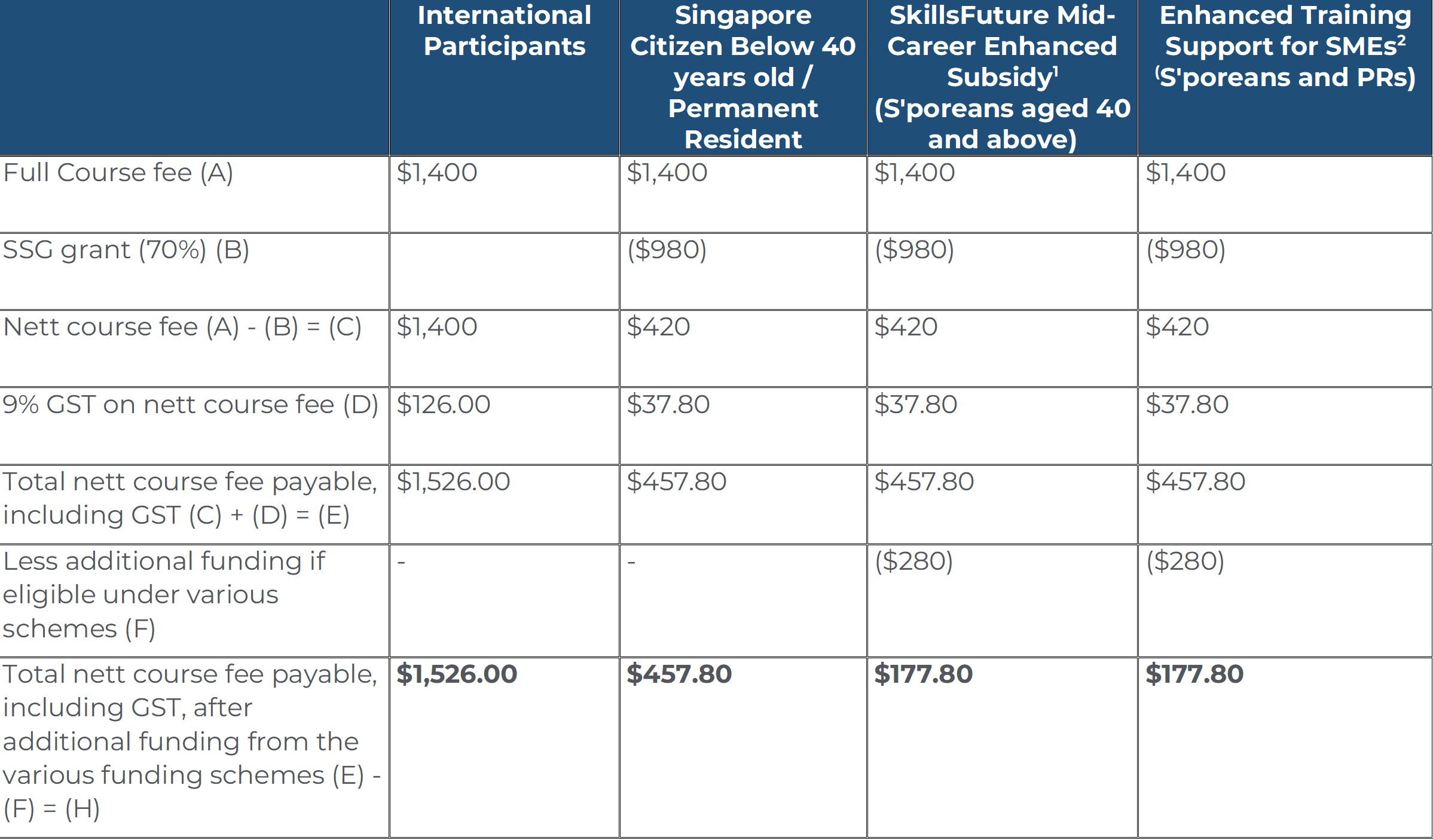Dates: 16 and 17 October 2024
Level: Intermediate
Duration: 2 days
Venue: Singapore University of Social Sciences
For Singapore Chemical Industry Council (SCIC) members, please click
here.
Considering the importance of human factors in accident and incident investigation, the training is to equip employees an understanding of the capabilities and limitations of human cognition such as attention, perception and decision making. Thereafter, looking at how these cognitive components that could lead to human error and accidents, the possible methodologies will be introduced in measuring cognitive work performance such that these human errors which are common causes of accidents can be prevented. The training will also demonstrate the use of established tools in determining the various causes of errors leading to the accidents.
Recommended for personnel who are involved in safety and health, and also those who are involved in accident and incident investigation or any incident reporting within their company.
- Introduction to Human Factors and Cognition
a. The Information-Processing Model - Capabilities and limitations - what leads to human error?
a. Perception and attention
b. Memory
c. Mental Workload
d. Fatigue/monotony
e. Decision Making
f. Situation Awareness
g. Crew Resource Management - Preventing human error
a. Mental workload measures
b. Situation Awareness measures - Determining the causes of error
a. Task Analysis
b. Cognitive Task Analysis
c. HFACS (Human Factors Analysis and Classification System)
A. Knowledge and Understanding (Theory Component)
By the end of this course, you should be able to:
- Define the information processing model
- Discuss the capabilities and limitations of human cognition and how this affects work performance
- Describe various methodology on cognitive work performance assessment for implementation at workplaces.
B. Key Skills (Practical Component)
By the end of this course, you should be able to:
- Demonstrate how to prevent human error through use of relevant human factors tools
- Identify when errors are due to human factors
- Apply error analysis methods in determining the root causes of accidents
| Time | Agenda |
|---|
| Day 1 |
| 09:00 - 09:30 | Course overview |
| 09:30 - 10:30 | Intro to Human Factors and Cognition |
| 10:30 - 10:45 | Break |
| 10:45 - 12:00 | Perception and attention, memory, decision making |
| 12:00 - 13:00 | Lunch |
| 13:00 - 15:30 | Fatigue, mental workload, situation awareness |
| 15:30 - 15:45 | Break |
| 15:45 - 17:30 | Case studies – human factors lead to errors |
| 17:30 - 18:00 | Assessment - Quiz |
| Day 2 |
| 09:00 - 09:30 | Recap and Overview |
| 09:30 - 10:30 | Tools to measure mental workload |
| 10:30 - 10:45 | Break |
| 10:45 - 12:00 | Tools to measure situation awareness |
| 12:00 - 13:00 | Lunch |
| 13:00 - 15:30 | Determining causes of human error (TA, CTA, HFACS) |
| 15:30 - 15:45 | Break |
| 15:45 - 17:30 | Case Studies |
| 17:30 - 18:00 | Assessment - Group Presentation |
- Written Quiz
- Group Presentation
Claimable SDU Points for Registered Workplace Safety& Health (WSH) Officers
Participants who have met the attendance rate and passed the end-of-workshop assessment will be awarded 15 SDU points by the Singapore Institution of Safety Officers (SISO).
Delicia Ser
Managing Partner & Aviation/Organisational Psychologist, Cydel Pte Ltd
Delicia is an Aviation and Organisational Psychologist with more than two decades of experience in aviation safety, crew resource management and human factors, having developed and conducted training for generations of safety officers and instructors within the aviation community. She has designed and implemented Human Factors incident reporting systems and safety climate surveys for the Republic of Singapore Air Force. Throughout her career, she has been involved in numerous air accident or incident investigations in the military. Notably, she was the appointed Singapore representative Aviation Psychologist for the SQ006 crash in Taipei, providing human factors expertise to the investigation team, and subsequent recommendations to improve international air safety. She currently serves as a volunteer Inspector of Accidents for the Transport Safety Investigation Bureau in the Ministry of Transport.
Delicia is Managing Partner of Cydel, an organizational psychology consultancy and training company whom she set up with a partner. Cydel provides a range of services in the area of Human Factors and safety, Mental Health and Well-being, Organisational Development and Assessment and Selection services across various industries and corporate sectors.

Cheng Chin Yi
Partner, Cydel Pte Ltd
Associate Consultant, Public Service Commission
Chin Yi is an Organisational / Aviation Psychologist with deep experience in human factors. She accrued much of her experience in her 18 years as a psychologist in the Republic of Singapore Air Force where she conducted human factors training and sat on multiple safety investigation teams as the human factors expert. She was also instrumental in reviewing RSAF’s safety reporting system and developing its human factors classification system. Currently, she continues to train industry in human factors and consults with companies on safety culture and climate.
Please submit the following documents to [email protected]:
- Coloured copy (back and front) of NRIC for Singaporeans and PRs, or "Employment"/"S" Pass for foreign applicant
- Application form
Course Fee

1 Mid-Career Enhanced Subsidy: Singaporeans aged 40 and above may enjoy subsidies up to 90% of the course fees.
2 Enhanced Training Support for SMEs: SME-sponsored employees (Singaporean Citizens and PRs) aged 21 and above may enjoy subsidies up to 90% of the course fees.
Participants are required to achieve at least 75% attendance and pass any prescribed examinations/assessments or submit any course/project work (if any) under the course requirement.
Participants are required to complete all surveys and feedbacks related to the course.
The course fees are reviewed annually and may be revised. The University reserves the right to adjust the course fees without prior notice.
Singapore University of Social Sciences reserves the right to amend and/or revise the above schedule without prior notice.
For clarification, please contact the SUSS Academy via the following:
Telephone: +65 6248 0263
Email:
[email protected]